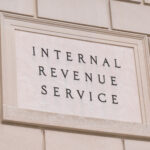
Director Aaron Apathy recently talked with Smart Business about how business owners can better manage their cash flow during uncertain times. Below is the full interview, which appeared in the May 2023 issue of Smart Business.
Inflation, rising interest rates, a challenging labor market and continued supply chain challenges are creating an environment of uncertainty for U.S. businesses. Whether it’s buying property or equipment, acquiring another business or hiring employees, these four big market factors are having a dramatic impact on companies’ ability to plan for the future and commit to a strategy.
“Business owner are paying more for everything that’s on their P&L right now,” says Aaron Apathy, director at Corrigan Krause CPAs and Consultants. “The uncertainty requires business leaders to react and respond more frequently as conditions change. Those with better internal planning are better positioned to navigate these challenges and find ways to thrive while others fail.”
Smart Business spoke with Apathy about cash flow planning and other internal changes companies can make to improve profitability and brace for continued challenges.
How can companies manage cash flow during uncertainty?
During economic uncertainty, companies need to engage in proactive cash flow planning. Through improved cash flow management, companies can strengthen their position.
Good cash flow only happens when companies actively manage it. Today’s conditions make it worth revisiting budgets often and making revisions based on changes that are happening in real-time.
Inflation and interest rates are frequently changing, and workforces are turning over more so than ever before, all of which are impacting a company’s cash flow. It’s affecting how companies are pricing their products as well as their input costs. Having that budget in place and established, and then revisiting it can help companies manage through uncertainty.
There are also concerns that the U.S. could experience a recession in the near future. Preparing for that means understanding the business’s breakeven point or burn rate — the revenue needed to keep the doors open and avoid exhausting its reserves. Having those numbers top-of-mind can help a business stay prepared to adjust or pivot before it’s too late.
What can companies do to improve cash flow?
Companies can look to better their net positive cash flow from operations by improving receivables collections with tactics such as standardizing the invoicing cycle, incentivizing customers to pay on time and adding automation to increase efficiency. All this can speed up the collection of receivables and improve cash inflow into the business.
Look to optimize accounts payable by exploring the vendor relationships routinely to understand which has the best value — there might be a better alternative that can generate a cost savings. Scheduling payments adds predictability to the business. Companies that can anticipate when inflows and outflows are going to happen have a better sense of their cash flow.
Now is a good time to explore the pricing structure. Is it accurate? In an inflationary environment, if costs rise but the company doesn’t change the price its charging for its services or products, the return shrinks. Companies should be open to adjusting their pricing appropriately when needed. That means monitoring and staying on top of pricing to know when to pass along cost increases and command consistent gross profit margins regardless of inflationary pressures.
Cash outflows can generate cash inflows, so investing in capital expenditures, whether it’s equipment or new technology, when appropriate, can help companies get to a positive return.
How might better planning and cash flow management lead to better outcomes?
Companies that do their cash flow planning right can build into their processes more certainty, which can help them weather difficult economic climates. With the right tools and resources in place, companies can set themselves up to thrive in comparison with competitors that do little to no cash flow management.
As much as possible, companies should budget, work to anticipate changes and be forward-thinking. Plan for multiple outcomes — the worst-case scenario to the best-case scenario — when it comes to the market factors that most affect the business. Be prepared and proactive. Demand for services and products exists for those that are differentiating themselves from their competitors. With planning and preparation, companies can put themselves in a strong position while companies that aren’t prepared are just reacting.
Corrigan Krause is a Business Owner’s Partner
Our proactive and comprehensive approach to servicing and managing our clients’ business needs allows us to stay ahead of changing regulations and fluctuating cycles you may experience. By building a strong relationship with our clients, holding quarterly planning meetings and immersing ourselves in your operations and goals, Corrigan Krause is in the unique position to uncover opportunities for you and to recommend a comprehensive package of services that benefit you in the long run. For information on becoming a Corrigan Krause client, email info@corrigankrause.com.


